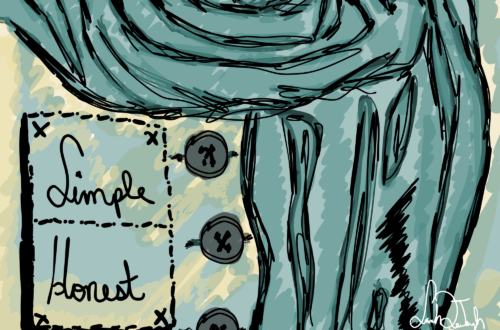I was sharing with a friend the other day about different times in my life where I remember vivid “carpet prayers” to the Lord. Do you know the prayers I’m talking about? The ones where you are face down on your living room floor before God- face pressed into the carpet. I’ve been there before, and I remember most of them vividly. I remember times where there were immediate answers, other times my faith was strengthened to wait for the provision, and still other times the answer was only the presence of God. As I walk through those memories, it seems like I either flooded the floor with fervent petitions or silently (or not so silently) lay there in grief, without words. The raw emotion of a broken heart before God.
There are seasons that send a believer into a valley of grief. Even while standing firm in our faith, we can still find ourselves standing there with a broken heart. What is our reaction when a thorn beyond our control is not removed and dashed hopes roll waves of grief over the broken places? Praise isn’t a natural response to pain. I believe the response of worship finds its origin in the work of the Holy Spirit. We see precedence for this, going back to the experience of King David, who despite the suffering he endured those years on the run from King Saul (and later the pain he experienced within his own family) was able to pen the majority of the Psalms. We know for a fact that the Psalms were written by the inspiration of the Holy Spirit. What does this tell us about the relationship between grief and praise? That even in his darkest times, King David’s worship was a work that originated with God. The heart cries of today’s believer will never result in the cannon of scripture. King David’s part in Biblical history was for a uniquely holy purpose. However, I do believe that the Lord gives today’s believer the ability to worship in the valley. Perhaps one of the greatest examples of worship is found in Job 1:21
“The LORD gave, and the LORD has taken away; blessed be the name of the LORD.”
Job recognized the sovereignty of God. He’s not saying that he understands, nor has to understand. He’s not saying that he doesn’t wish things were otherwise. We know from scripture the weight of grief he would carry. In that moment, I truly believe we see a work of grace in the heart of an ancient believer. He knew the Lord and his relationship with God served as a bedrock upon which he could stand in grief and say: the Lord gives and he takes away. Job could praise God in that moment because of the work of God in his life. He wasn’t assured of a positive outcome. He didn’t have a guarantee that things would be made right, and yet he would say with confidence that in the face of the blessing or the taking, God is worthy of praise.
Dearly loved of God, I don’t know what grief your heart carries. But I do know that the God of Abraham, Isaac, and Jacob (and Job!) is faithful in his pursuit of your heart, even in the valley. I think of what the apostle Paul said in Philippians 1:6:
“And I am sure of this, that he who began a good work in you will bring it to completion at the day of Jesus Christ.”
Sorrow does not negate the work of the Lord, even if you find yourself face down before the throne in your grief. I am grateful for Job’s example, for King David’s example, and for all those others in the Bible who brought their grief before God (sometimes, imperfectly). We have the examples of those who have gone before us, their stories written in the pages of scripture. The ultimate example is Jesus himself. In Matthew 26:36-40, we see his response to being “sorrowful and troubled.” In those moments, he asked his disciples to watch with him and he prayed to his father. While we will never fully know the weight of the Lord’s grief, let us follow in his holy footsteps, as much as we are able in our circumstance. God gave us his very own example in the person of his son. If possible, reach out to the family of believers and lean into His presence during the storm. Praises sung or uttered quietly (perhaps into the carpet) are a powerful reflection of our position in relation to an almighty God. In grief, praise is a way to acknowledge his sovereignty over any brokenness. It’s a time where the Holy Spirit can minister to our hearts. Even if our worship just looks like sitting in the Lord’s presence, he can knit us back together in that place.






